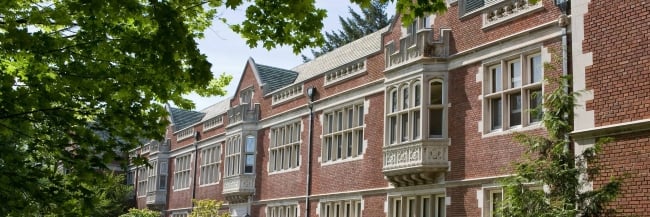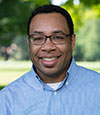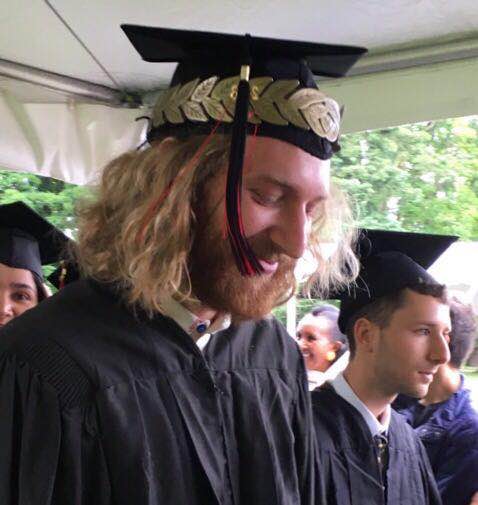You have /5 articles left.
Sign up for a free account or log in.

Reed College
At the end of 2016, Reed College officials started to worry that the class to enroll this fall might be seriously short on students from outside the United States. Reed has in recent years been enrolling around 33 new international students each year, between 8 and 9 percent of the freshman class.
And Reed, like many American colleges, was getting a lot of negative indications from prospective international students in the weeks after Donald Trump was elected president.
Guidance counselors at international high schools that have in the past sent students to Reed sent email messages with lines such as "I've already had two students come to my office to withdrawal all U.S. applications" and "I now have students we are truly afraid to study in the U.S. ... even more than the gun violence."
Reed has an outstanding reputation as a liberal arts college. Reed's campus culture embraces diversity and the college is located in Portland, Ore., a progressive city that is hardly Trump territory. (In the county that includes Portland, 76 percent of the vote went to Hillary Clinton.)
But the message about Reed being inclusive wasn't strong enough to counter images of Trump's America. Reed uses software to project enrollment of different groups, based on expressions of interest, communications and so forth. The projections were coming in for a serious decline in new international students.
Many colleges and universities are reporting flat or declining yields for the fall, according to data released last week by the Institute for International Education. So how is Reed ending up with a record number of international students, bringing the international share of its freshman class to 15 percent?
 First the college decided to push back all deadlines for international applicants, trying to buy some time to deal with the negative image that was taking hold, said Milyon Trulove (right), vice president and dean of admission and financial aid.
First the college decided to push back all deadlines for international applicants, trying to buy some time to deal with the negative image that was taking hold, said Milyon Trulove (right), vice president and dean of admission and financial aid.
"We knew that there was something we needed to do," he said.
The single most important tactic Reed adopted, Trulove said, was sending a letter to all prospective international applicants in February from John Kroger, the college's president.
In much of the world, including countries from which Reed recruits students, college leaders are assumed to endorse the views of their government leaders, or at a minimum can't challenge them. Kroger's letter may not have been stunning in the context of what some American college presidents say, but it was direct (shockingly and reassuringly so to some prospective students) in disavowing Trump.
"Recent shifts in policy regarding travel to the U.S. are in direct conflict with our desire to bring together at Reed thinkers from a broad range of nations, faiths and races to pursue shared intellectual passions and exchange their ideas," wrote Kroger. "It also deeply offends Reed community values with respect to tolerance, religious freedom, human dignity, and freedom to travel."
The Reed president continued by drawing attention to values of the college as reflected by its diversity statement. “Reed embraces the inherent value of diversity," Kroger wrote. "It is committed to attracting the best and brightest from every group, including those who have historically experienced discrimination and prejudice, for it recognizes that dialogue between people with different perspectives, values, and backgrounds enhances the possibilities for serious intellectual inquiry.”
The letter went out in February and -- almost immediately -- the impact was evident. The tone of inquiries shifted to the sorts of questions that indicate an interest in enrolling if admitted.
And many of those who received the letters responded directly to Kroger. Reed shared a few responses, removing students' names.
One, from a student in Pakistan, simply said: "This means a lot, thank you."
Another, from a student in Morocco, was longer. He shared an essay he had written about being devoted to his Muslim faith, and lessons learned from imams on Fridays at mosques. But the theme of his essay was about how his parents didn't force him to abide by their family's faith, and how he came to value his choice to observe. Faith that isn't imposed is the best kind, he wrote.
The student's email to Kroger (who was attorney general of Oregon before becoming Reed's president) said: "I have received your email about the recent shifts in policy regarding travel to the U.S. Thank you for securing me. I want to make sure that your honor knows that I am intellectual freedom supporter. I know that you have a special place in your heart for law. Well, we both do and I believe that one of law’s purposes is to give equal opportunities to all humans without consideration their race or faith. We are all humans looking to serve the humankind. I believe that Reed College will give me the full opportunities to realize my dreams."
As Reed was counting up its commitments to enroll in the fall, tragedy struck that also might have unnerved students. Two people in Portland were stabbed when they attempted to intervene when a man was shouting slurs at two women, one of them wearing a hijab, who appeared to be Muslim. Portland, despite its progressive reputation, has attracted a small but visible group of white supremacists, potentially adding to the safety concerns many international students have about the United States.
 Trulove said that the tragedy hit Reed hard. One of those killed was Taliesin Myrddin Namkai-Meche (left), who had just graduated from the college. Reed has created a scholarship fund in his honor. Trulove said that the killings don't seem to have scared off students. He said that the story of Namkai-Meche's heroism and commitment is one that resonates with all of those considering the college, including those from other countries, as representing the values of the college, far more than does the president of the United States.
Trulove said that the tragedy hit Reed hard. One of those killed was Taliesin Myrddin Namkai-Meche (left), who had just graduated from the college. Reed has created a scholarship fund in his honor. Trulove said that the killings don't seem to have scared off students. He said that the story of Namkai-Meche's heroism and commitment is one that resonates with all of those considering the college, including those from other countries, as representing the values of the college, far more than does the president of the United States.








